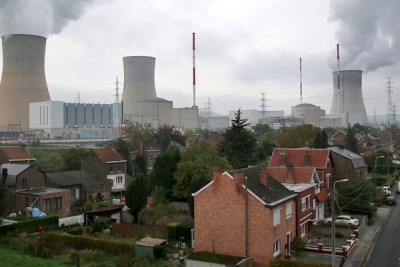«The European Union mourns the victims of the terrorist attacks in Brussels,» said the joint statement of the Heads of State and Government of all member countries after the terrorist attacks of March 22. Therefore from now on, Europe will take a stand for greater union in the economic area, capital markets, energy but above all, security.
«We believe we need the union of the energy, the capital market, the economic union, but also the union of security,» said President of the European Commission, Jean-Claude Juncker, while he expressly referred to measures to improve the protection of external borders and to have a European register of air passenger’s data (PNR). «We need the PNR, now the solution is in the hands of the European Parliament (EP)».
But it is not only a decision at the European level, but also between countries. Especially France and Belgium, whose prime minister, Manuel Valls and Charles Michel respectively, have announced that they will strengthen police and judicial cooperation to combat jihadist terrorism, both at bilateral and European level.
Valls has warned that the terrorist threat «is at an unprecedented level» and that attacks by the Islamic State will continue, «the question is where and when.»
Nuclear power plants
Some of the targets into the spotlight of terrorists are the nuclear power plants for their dramatic and irreversible consequences. The International Atomic Energy Agency (IAEA) has warned that there is the possibility of an attack of such kind, with devastating consequences, but are they so vulnerable?
The world must prepare for the risk of «nuclear terrorism», said the director of the IAEA, Japanese Yukiya Amano, calling on States to «strengthen nuclear safety».
«Terrorism is spreading and the possibility of them using nuclear materials cannot be excluded,» he added. «The biggest problem lies in the countries that do not recognize the danger of nuclear terrorism.»
To Amano, besides the risk of a direct attack on one of the nearly 1,000 nuclear facilities existing all over the world, the other risk is the theft of radioactive materials. In the last 20 years, the IAEA has recorded about 2,800 cases of this type of traffic, including illegal possession of materials and the «loss» of substances.
To all this, the coordinator of the European Union for the fight against terrorism, the Dutch Gilles de Kerchove, also expressed his fears: «In five years, they could take control of a nuclear power plant».
Tihange nuclear plant
With this state of alert, just one day after the attacks, workers at the Tihange (Belgium) nuclear power plant had to be evacuated following the attacks while access controls were reinforced.
And some media, as the Belgian newspaper ‘La Dernière Heure’, have reported that actually they were planning to attack nuclear plants in the country, but changed their target when one of his accomplices was arrested. According to the newspaper, the arrest of Salah Abdeslam accelerated the plans of the terrorists, and that the brothers placed a hidden camera in front of the Belgian Nuclear Research Program director´s house.
Carlos Sánchez Criado
Publicista por la Universidad Complutense. Director comercial de publicaciones técnicas del sector de la energía durante doce años. Director de Energy News Events, S.L. desde 2012 difundiendo información en Energynews.es, movilidadelectrica.com e hidrogeno-verde.es. Y por supuesto, organizando eventos como VEM, la Feria del Vehículo Eléctrico de Madrid.





















